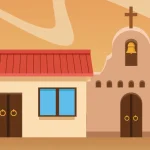What happens when a trusted doctor of a nation’s gymnastics team sexually assaults more than 150 women over 20 years? What happens when a “sanskari” veteran of Bollywood is accused of sexually assaulting female colleagues from the industry? What happens when a father uses his daughter for his sexual gratification from the time she grew breasts?
Nothing really. Nothing can happen unless these crimes are brought to light.
Wrong.
Nothing can happen unless when these crimes are brought to light, someone responds.
Wrong.
Nothing can happen unless when these crimes are brought to light, someone responds with validation, affirmatory action, and justice pursued.
Getting there.
Nothing can happen unless when these crimes are brought to light, society collectively responds with validation, affirmatory action, and justice pursued.
This cannot be the pursuit of the single.
The incidents listed above are a drop in the ocean of narratives of abuse, assault and violence. Of power, aggression and suppression. The recent spate of such accounts that have made it to the media, especially after the #Me Too movement took off last year, might indicate that it is a recent phenomenon. Unlikely. It seems more a case of someone talked, someone responded and acted. This time, it is a movement from survivors, for survivors.
I was in Michigan State University (MSU) with my team this October to present our performance piece called Positively Shameless on childhood sexual abuse (CSA) and its residues in adult women survivors of CSA. The timing of our presence at MSU was quite significant, a Kairos moment for me. MSU is reeling under the aftermath of Larry Nassar’s conviction in the sexual assault of a staggering number of women/children when he was a USA gymnastics national team doctor and an osteopathic physician at Michigan State University. The silent complicity of the university enabled the abuse to perpetuate for that long. The university’s response to the Nassar case has been “extremely sub par and painful for many students”, in the words of one student.
The pain carried by the community is more than the pain of the assaults itself. It is the pain of silence, of complicity from the very powers that be—who could have and should have responded with action. Instead, each girl/woman assaulted bore shame, blame, and guilt which was not hers to carry.
Locate your personal sense of responsibility in this narrative of violence and silence—bring your voice. Countless children and women have silently borne not just violence but carried shame, guilt and powerlessness that is not their burden to carry. Our voices can ease that burden
I am glad about the Me Too movement. It’s amazing to see how many women across strata of power and society have spoken up. I can’t help thinking though that a ‘Me Too’ must lead to ‘You Too’ as well. Who is the ‘you’ here? It’s everyone else. For every ‘me’ who disclosed she too was abused, there are ‘you-s’ who, in all honestly, need to acknowledge (at least to themselves to begin with) that they too did little or nothing in response to the disclosure. And that makes them as complicit as the perpetrator.
This is a difficult idea to sit with. If I did not abuse, how am I complicit?
I am.
When I choose to be silent, I am. When I silence the abused instead of confronting the perpetrator, I am. When I collude with a system that covers up rather than exposes, I am. When I lay the burden of safety and protection on the child rather than the adult, I am. Every time I hear a story and think I had nothing to do with it, I am.
We are complicit. Where do we go from here?
Even as I was writing this piece, my newsfeed popped up Bollywood actress Sonam Kapoor speaking on the ‘Me Too’ movement where she admitted “I’ve been part of movies which I know are a part of the problem. I own up to them now. I admit that I have been part of the problem. Often, we do things unknowingly, but when we know better, we should own up to it… If you are silent and don’t take sides then you are, I am afraid, on the side of the person who is wrong.” This to me, looks like a #You Too.
So maybe it starts somewhere like this. We don’t have to be a celebrity to have a voice. Speak for your child, speak for your colleague, speak for your congregation member, speak for your student. Speak to the authorities, speak to your boss, speak to your pastor, speak to the media. Locate your personal sense of responsibility in this narrative of violence and silence—bring your voice. Countless children and women have silently borne not just violence but carried shame, guilt and powerlessness that is not their burden to carry. Our voices can ease that burden.
If we can see that while the perpetrators are responsible, they are not responsible alone. We enabled them, enabled the system. Therefore, now we also have a collective responsibility in the way we respond to restore a broken system. A paradigm for locating our response could be in Isaiah 61: Heal the heart of the broken…comfort and care for the needs of those who mourn…rebuild the ruins…and bring freedom and good news to the captives.
Or maybe, you have another paradigm. As long as we have one, which compels us to speak and act for the other. Any restorative work will bear witness to the above.






